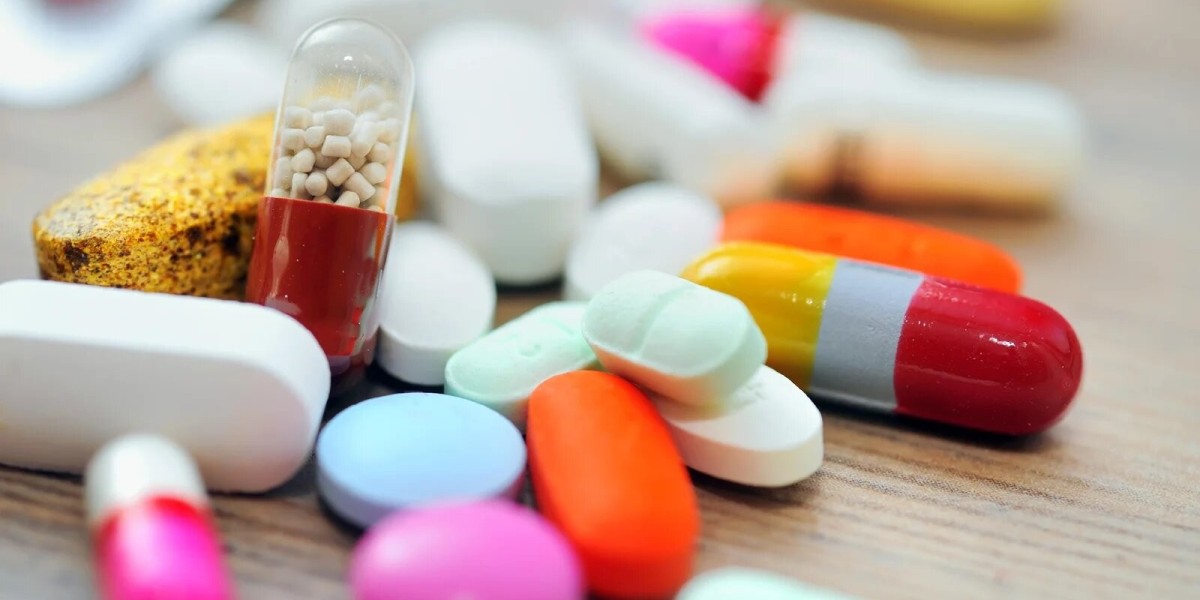Chronic Myeloid Leukemia (CML) is a serious type of blood cancer that affects the bone marrow and blood. It happens when the body starts producing too many white blood cells that do not work properly. Over time, these bad cells crowd out the healthy ones, making it hard for the body to fight infections, carry oxygen, and stop bleeding. One of the drugs used to manage this condition is Hydrea, also known by its generic name Hydroxyurea.
This article will help you understand what Hydrea is, how it works, and whether it can help treat resistant Chronic Myeloid Leukemia. We’ll go step by step, using simple language so that everyone can understand, even without a medical background.
What Is Chronic Myeloid Leukemia (CML)?
Before we talk about Hydrea, it's important to understand what CML is. CML is a type of cancer that starts in the bone marrow—the soft tissue inside our bones where blood cells are made.
In people with CML, something goes wrong with their DNA. This causes a gene called BCR-ABL to form. This gene produces an abnormal protein that tells the bone marrow to make too many white blood cells. These white blood cells grow quickly and don’t die when they should. As a result, they build up in the blood and crowd out normal cells.
What Does "Resistant" CML Mean?
Most patients with CML are treated with special drugs called TKIs (Tyrosine Kinase Inhibitors), like Imatinib, Dasatinib, or Nilotinib. These drugs target the BCR-ABL protein and stop the cancer from growing.
But sometimes, these drugs stop working. When that happens, doctors say the CML is resistant to treatment. Resistance can happen if the leukemia cells change and stop responding to the drugs. This is a serious situation and needs a different treatment approach. That’s where drugs like Hydrea (Hydroxyurea) might come in.
What Is Hydrea (Hydroxyurea)?
Hydrea is a chemotherapy drug that has been used for many years to treat different kinds of blood disorders. It’s an older medicine, but still very helpful in certain situations.
Hydrea works by slowing down or stopping the growth of cancer cells. It stops the DNA inside cells from making copies of itself. Without new DNA, the cells cannot divide and grow. This is helpful for people with blood cancers like CML, especially when other drugs have stopped working.
Hydrea is taken orally, usually in the form of a 500 mg capsule, once or twice a day depending on the doctor’s instructions.
How Does Hydrea Help in Resistant CML?
If the usual TKIs don’t work anymore, Hydrea can help in several ways:
1. Reduces White Blood Cell Count
One of the most dangerous things about CML is the high number of white blood cells. Hydrea helps bring this number down quickly. This makes the blood thinner and easier to flow. It also reduces the risk of blood clots and organ damage.
2. Buys Time for Other Treatments
Hydrea can be used as a temporary measure while doctors figure out a long-term plan. For example, if a patient is waiting for a bone marrow transplant or a clinical trial, Hydrea can help keep the disease under control.
3. Controls Symptoms
CML can cause symptoms like fatigue, bone pain, night sweats, and a swollen spleen. By slowing the growth of bad cells, Hydrea helps reduce these symptoms, improving the patient’s quality of life.
Is Hydrea a Cure for Resistant CML?
No, Hydrea is not a cure for CML. It is used to manage the disease, especially when other options have failed. In most cases, Hydrea is part of a supportive treatment plan. That means it helps control the disease but does not get rid of it completely.
For some patients, especially older adults or those who cannot tolerate stronger treatments, Hydrea may be the best option available.
When Do Doctors Use Hydrea for CML?
Doctors may use Hydrea in different situations, such as:
Newly diagnosed patients with extremely high white blood cell counts. Hydrea can be given before starting TKIs.
Patients who do not respond to standard CML drugs.
Patients who cannot take TKIs due to side effects or other health problems.
People in the blast crisis phase of CML, when the disease becomes more aggressive and life-threatening.
While waiting for lab test results or genetic tests to guide future treatment.
How Long Do Patients Take Hydrea?
The length of treatment with Hydrea depends on the patient’s condition. Some may take it for a few weeks, while others may stay on it for months or even years. Regular blood tests are done to monitor the effects and adjust the dose as needed.
If the disease becomes stable, doctors may switch the patient back to TKIs or suggest other treatments like stem cell transplants.
Read more: Specialitymedz
What Are the Side Effects of Hydrea?
Like all medicines, Hydrea has side effects. Not everyone gets them, but it’s important to be aware. Common side effects include:
Nausea or vomiting
Loss of appetite
Mouth sores
Skin darkening
Fatigue or weakness
Low red or white blood cell counts
Risk of infection due to low immunity
Hair loss (rare)
Doctors will monitor patients with regular blood tests to check for serious side effects like low platelets or bone marrow suppression. If needed, the dose can be changed, or the drug can be stopped.
Who Should Not Take Hydrea?
Hydrea is not suitable for everyone. People who should avoid it include:
Pregnant women (it can harm the unborn baby)
Breastfeeding mothers
People with severe liver or kidney disease
Those with allergies to Hydroxyurea
Doctors will take a full medical history before prescribing Hydrea to make sure it is safe.
How Is Hydrea Taken?
Hydrea comes as a capsule, usually 500 mg. It’s taken by mouth with a glass of water. It can be taken with or without food, but taking it with food may reduce stomach upset.
Patients should follow the doctor’s instructions exactly and never change the dose without talking to their healthcare provider. Missing doses or taking too much can be dangerous.
Tips for Taking Hydrea Safely
Wash hands before and after handling the capsule.
Do not crush or chew the capsule.
Drink plenty of fluids unless advised otherwise.
Use gloves if helping someone else take the medicine.
Store the medicine in a cool, dry place.
Keep away from children and pets.
Can Hydrea Be Used with Other Medicines?
Yes, but it depends on the specific case. Hydrea can sometimes be used along with other medicines like TKIs or steroids. But it can also interact with other drugs, so the doctor must know about all the medicines, supplements, or herbs a patient is taking.
Some interactions can cause stronger side effects or make the treatment less effective.
What Do Studies Say About Hydrea in Resistant CML?
Clinical studies have shown that Hydrea is effective in reducing white blood cell counts and improving symptoms in resistant CML cases. While it may not lead to full remission, it plays an important role in disease control, especially in the short term.
In some studies, patients with advanced or blast-phase CML who were treated with Hydrea had better symptom relief and could be stabilized enough to qualify for more advanced therapies like bone marrow transplants.
Is Hydrea Affordable?
Yes, compared to newer cancer drugs, Hydrea is much more affordable. It is available in generic form, which reduces the cost even further. This makes it a valuable option for patients in low-income settings or those without insurance.
Many health programs around the world include Hydroxyurea in their essential medicine lists for treating certain blood disorders.
Final Thoughts: Can Hydrea Help Treat Resistant CML?
Yes, Hydrea can be very helpful in treating resistant Chronic Myeloid Leukemia, especially when standard drugs don’t work or cannot be used. While it is not a cure, it helps control the disease, reduce symptoms, and lower dangerous white blood cell counts.
It’s a trusted medicine with decades of use in blood disorders. In resistant or emergency CML cases, Hydrea can be a lifesaving option, offering hope and relief to many patients.






